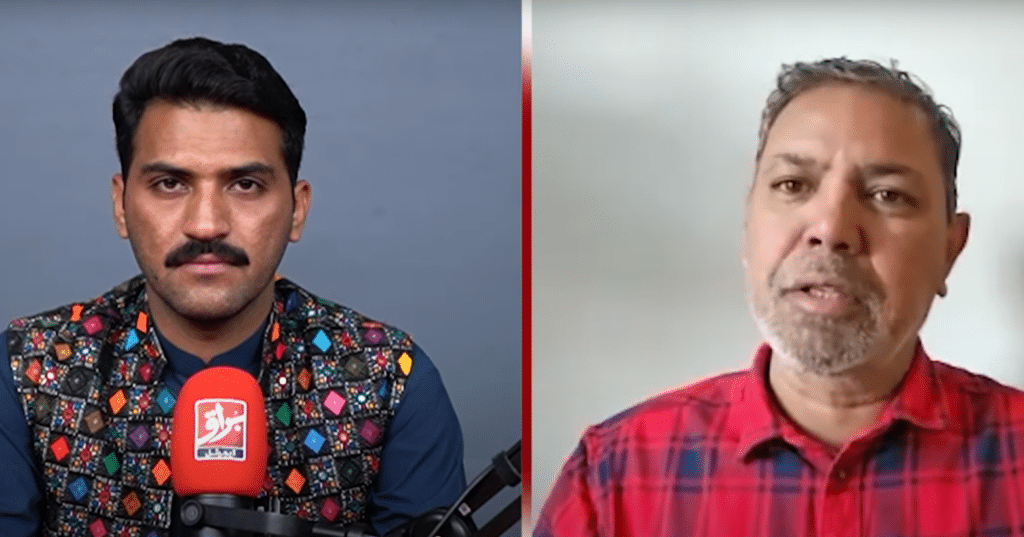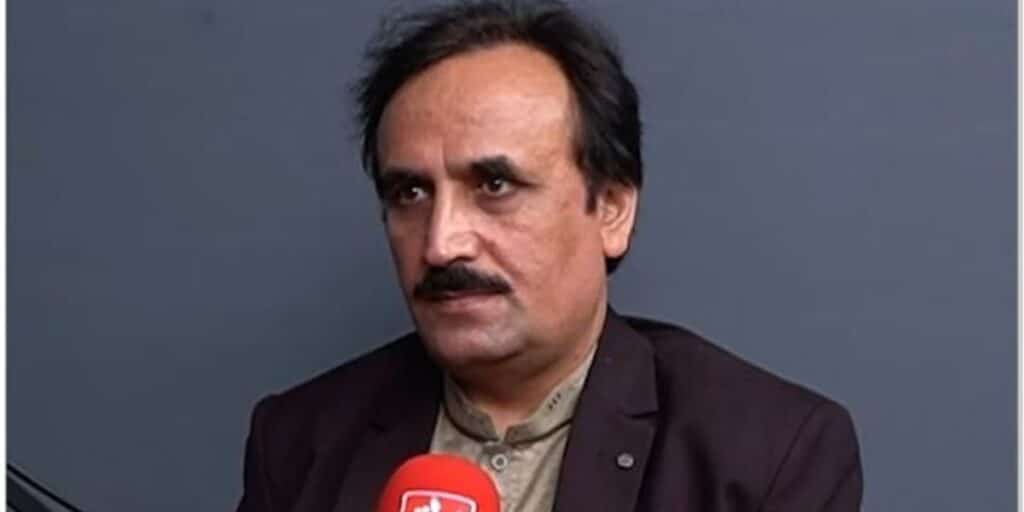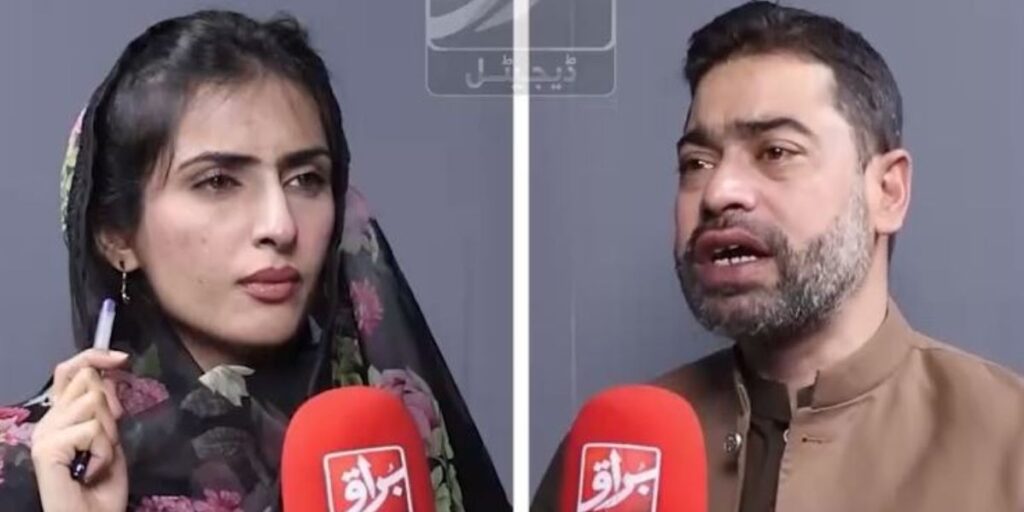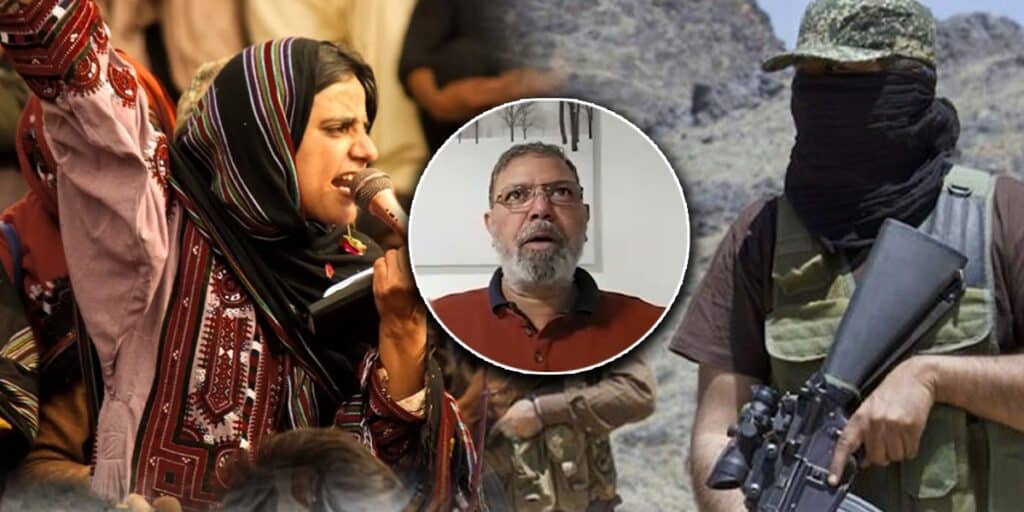By: Ashir Azeem
I am a Pakistani who has witnessed this nation’s complex history unfold, and I find myself compelled to address the growing manipulation of Balochistan’s political discourse, especially by foreign powers and their local proxies.
I am a former civil servant. Ashir Azeem recently spoke candidly about the exploitation of Baloch sentiments through foreign agendas, especially those masked under the noble-sounding banners of human rights and civil liberties.
I remember the moment when Time magazine featured Dr. Mahrang Baloch, portraying her as the face of “resistance.” The Western media rarely misses an opportunity to frame regional actors in the context of victimhood and rebellion especially when it serves their geopolitical goals.
So far, Dr. Mahrang describes herself as a “human rights activist,” I noticed that the journalists around her, so eager to spotlight her cause, never once asked her about her specific demands.
What exactly does she stand for? What does she propose as an alternative? Is it merely emotional rhetoric, or is there a viable model for governance that the separatists advocate?
However, exploiting the realities to wage a propaganda war under the influence of external forces is not the path to empowerment; it is a recipe for chaos.
The West has mastered the art of selectively deploying awards Oscars, Nobel Prizes, magazine covers as instruments to elevate voices that align with their interests.
The glorification of select figures is not about promoting human rights; it’s about constructing a narrative.
I found the historical comparison between Balochistan and Bangladesh in 1971 to be both bold and thought-provoking. When the language barrier Bengali versus Urdu as a central fault line that contributed to Pakistan’s disintegration, I couldn’t disagree. Language carries emotion, culture, and identity, and in the case of East Pakistan, it became the rallying point for an entirely separate national consciousness.
There is no singular linguistic fracture in Balochistan. The province is home to a tapestry of languages Balochi, Brahui, Pashto, Persian dialects, and others each carrying its own heritage. Unlike the Bengalis of East Pakistan, who shared a unified linguistic and cultural identity, the people of Balochistan do not have that singular thread to rally around for a nation-state. And that matters.
When people talk about Baloch separatism, I often wonder: on what basis? Where is the unifying identity that can support a sovereign structure? Where is the economic model, the administrative framework, the territorial cohesion that could sustain it?
I don’t see it and I don’t think anyone genuinely advocating for separation can show it either. In my view, it should force us to reevaluate the dangerous rhetoric that’s so casually thrown around by certain groups and their foreign backers.
Moreover, instead of fueling division, we should accept Balochistan’s diversity as a strength. We’ve made mistakes in the past yes, including the flawed One Unit policy—but let’s not repeat them in another form.
Further, the separatists often point to a lack of “freedom” in Balochistan. But I ask what curriculum Baloch students are studying? What platforms exist for expression, debate, and criticism? Baloch writers, journalists, and academics are present in public discourse.
Yes, there are challenges but the presence of these voices itself is proof that space exists. The portrayal of totalitarian suppression is dishonest.
Lastly, Indian Prime Minister Narendra Modi was snubbed from the G7 meeting by Canada. In today’s hyper-connected world, even global diplomacy reveals which states are losing credibility. Modi’s exclusion is symbolic; it signals a growing realization in the West about the hypocrisy of those who promote nationalism at home and finance separatism abroad.
The people of Balochistan deserve justice, development, and dignity. But those objectives will never be achieved through slogans echoed in European capitals or hashtags funded by foreign NGOs.
They will be achieved through local governance reforms, investment in education and health, and an inclusive national narrative that respects regional identities.
Also Read: Digital propaganda and psychological warfare: How Balochistan is fighting back
The future of Balochistan is not in the hands of those who seek to fragment it, but with those who work, day and night, to build it within the federation, not outside it.





